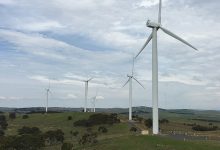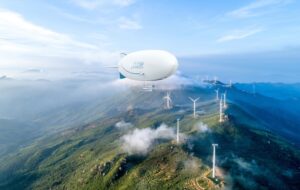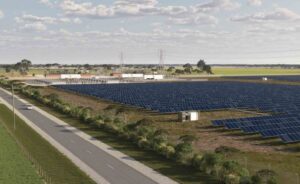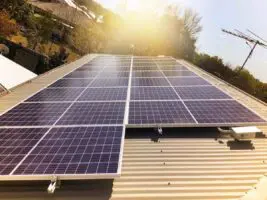The Swinburne University of Technology has become the latest tertiary institution to go 100 per cent renewable, signing a deal with Infigen Energy to supply its campuses with renewable electricity.
The deal will see all of Swinburne’s electricity consumption matched with generation from the Infigen Energy developed 57.6MW Cherry Tree Wind Farm in Victoria’s Goulbourn Valley.
The wind farm commenced its first generation last month and is undergoing the final commissioning of its 16 wind turbines.
Emissions associated with electricity consumption currently represents around 70 per cent of Swinburne’s greenhouse gas footprint, amounting to around 30,000 tonnes of carbon dioxide equivalent each year.
“This agreement is a significant milestone for us as we continue to demonstrate our resolve to ensure a sustainable future by significantly reducing our carbon footprint. This also brings us a step closer to our goal of being carbon neutral by 2025,” Swinburne’s vice-chancellor Professor Linda Kristjanson said.
“I look forward to collaborating with like-minded organisations, such as Infigen Energy, as we continue to focus on embedding sustainability across Swinburne and our daily operations”.
For Swinburne, the switch to renewables is part of wider plans to become carbon neutral by 2025, and follows a ramping up of its on campus sustainability measures after signing on to the United Nations Sustainable Development Goals in 2018.
“We ensure sustainability is incorporated into our strategic planning and are constantly seeking new ways to reduce our impact on the environment,” Professor Kristjanson added.
Infigen Energy, which has traditionally operated as a developer and operator of wind and solar projects in Australia, has worked to diversify its business offerings by expanding into the retail electricity market for commercial customers.
“Swinburne joins a growing list of Australian businesses who are proactively decarbonising their operations for the long-term benefit of their stakeholders. We are delighted to be partnering with Swinburne and we look forward to working closely together over the coming years,” Infigen Energy CEO Ross Rolfe said.
Swinburne joins a going list of universities in switching their electricity use to renewable sources, and follows the university becoming one of the first to become a signatory of a formal declaration of a climate change emergency in January.
Last month, Macquarie University announced that it would make the switch to renewables starting in a deal struck with Snowy Hydro subsidiary Red Energy.
In 2018, the University of Newcastle secured a similar deal with Snowy Hydro’s Red Energy subsidiary, securing a contract for the supply of 100 per cent and firmed supply of renewables. Part of the University’s effort to transition to renewables included the installation of 2MW of onsite rooftop solar capacity.
The University of Queensland struck a similar deal with the 64MW Warwick Solar Farm to supply power to its campus in Brisbane.
Monash University secured funding from the Australian Renewable Energy Agency to transition the university’s electricity systems to a 100 per cent renewable microgrid. The system involved the installation of 1MW of rooftop solar combined with 1MWh of battery storage and included facilities for electric vehicle charging.










